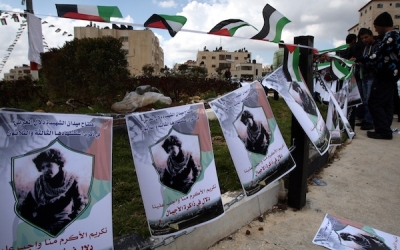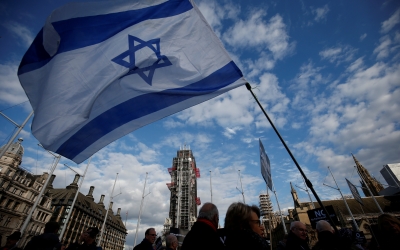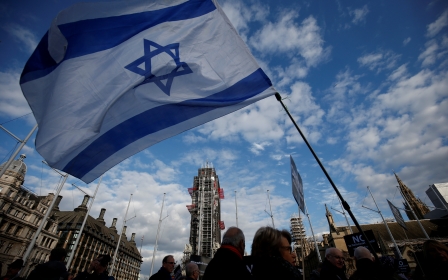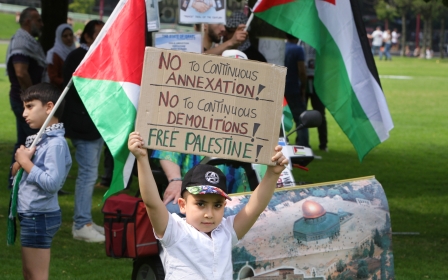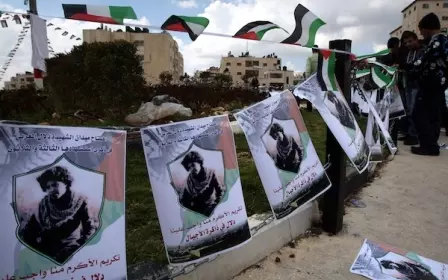Israeli ‘anti-terrorism’ lawyer was convicted over attacks on Palestinians
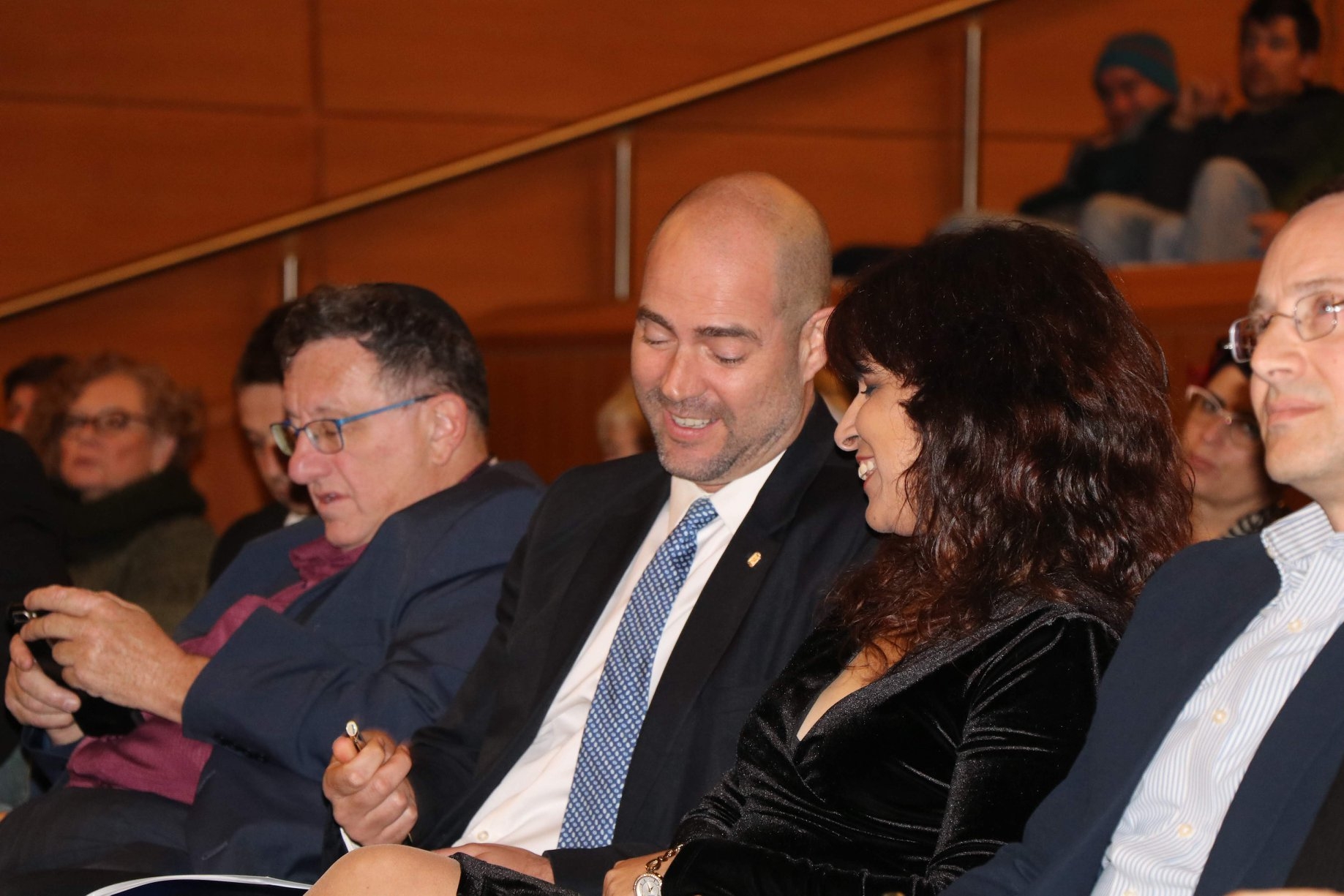
A lawyer working for an Israeli organisation that says it is dedicated to “fighting terrorism” was himself convicted of violent attacks targeting Palestinian civilians and property in occupied East Jerusalem and the West Bank during the 1980s, Middle East Eye can reveal.
Aviel Leitner, who works for the Tel Aviv-based Shurat HaDin, also known as the Israel Law Center, was part of a group linked to the far-right Kach party, which was accused of carrying out six attacks in 1983 and 1984. These included a shooting targeting a bus carrying Palestinian labourers near Ramallah in which six people were injured.
Leitner, the husband of Nitsana Darshan-Leitner, Shurat HaDin’s founder, was eventually sentenced to 30 months in prison in 1986 after Israeli authorities were forced to request his extradition from the United States, where he had fled while on bail.
The revelations come on the eve of Shurat HaDin’s participation in an annual conference organised by Jerusalem-based pro-Israel lobby group NGO Monitor this Thursday. The title of the conference is “Terror Leaders as Human Rights Activists: Exposing the Facade”.
Speakers at the online conference include Darshan-Leitner and Noam Katz, the deputy director-general and head of public diplomacy for the Israeli Ministry of Foreign Affairs.
New MEE newsletter: Jerusalem Dispatch
Sign up to get the latest insights and analysis on Israel-Palestine, alongside Turkey Unpacked and other MEE newsletters
Both NGO Monitor and Shurat HaDin are known for attacking organisations which document international law violations by Israeli authorities and provide support for Palestinian civil society.
Shurat HaDin describes itself as being “at the forefront of fighting terrorism and safeguarding Jewish rights worldwide” and “dedicated to protecting the State of Israel”. It says it works with “Western intelligence agencies [and] law enforcement branches” and utilises “court systems around the world to go on the offensive against Israel’s enemies”.
A common allegation in such cases is that Palestinian human rights activists have direct or indirect links to terrorism.
Hundreds of Palestinian organisations have been proscribed by Israeli occupation authorities since 1967, according to Human Rights Watch, with Palestinians routinely convicted of terrorism offences in military courts.
Shurat HaDin says it is not affiliated with the Israeli government. But in a leaked US diplomatic cable from 2007, Darshan-Leitner told US officials that “in its early years” Shurat HaDin “took direction from the GOI [Government of Israel] on which cases to pursue”.
The cable quoted Darshan-Leitner as saying: “The [Israeli] National Security Council (NSC) legal office saw the use of civil courts as a way to do things that they are not authorised to do”.
Kach party member
The attacks for which Leitner - when he was known as Craig Arthur Leitner - and others were convicted have been documented in a number of published accounts.
A report about Leitner’s conviction published in the Hebrew newspaper Maariv in 1986 described him as having been active in the Kach party, a far-right movement founded by Rabbi Meir Kahane, an anti-Arab activist and Israeli politician known for his hardline views.
The Kach party was banned in Israel in 1994 after party member Baruch Goldstein killed 29 Palestinian worshippers at the Ibrahimi mosque in Hebron.
According to a 2011 book, Jewish Terrorism in Israel, by Israeli academics Ami Pedahzur and Arie Perliger, the US-born Leitner moved to Israel after he had participated in Jewish Defence League (JDL) summer camps in New York’s Catskill Mountains, where “youngsters absorbed Kahane’s teachings and learned how to use a gun”.
The JDL, which was co-founded by Kahane, was designated by the FBI in a 2000/2001 report as a “right-wing terrorist” group, whose members have a long history of anti-Palestinian violence.
According to US legal records relating to his subsequent extradition case, Leitner and other Kach party members were accused of carrying out “six acts of terrorism”, including Molotov cocktail and arson attacks on Palestinian homes and vehicles in East Jerusalem and Hebron and a newspaper office in East Jerusalem.
In March 1984, three members of the group including Leitner were arrested in the immediate aftermath of a shooting attack that targeted Palestinian labourers aboard a bus near Ramallah.
“Defendant was active in planning the attack. He drove the participants to the site of the attack, and while an accomplice fired an M-16 rifle at the bus, wounding six Arab civilians, defendant waited to drive them away,” a memorandum reads.
'Wanted in Israel'
After his arrest, and despite having turned state witness, Leitner fled Israel to the US. There, in January 1986, Leitner was arrested at Pace University’s law school campus in New York. A New York Times report of the arrest described him as “wanted in Israel on charges of planning and carrying out armed attacks on Arabs”.
In August 1986, following various legal proceedings including denial of bail, Leitner returned to Israel after agreeing to a plea bargain.
According to the Maariv news report, Israeli prosecutors agreed not to prosecute him for fleeing the country and violating a state witness agreement in exchange for his returning to Israel voluntarily and pleading guilty to all six indictments.
Leitner was sentenced to 30 months in prison, reduced by 13 months for the time between his arrest and fleeing to the US.
Leitner’s work at Shurat HaDin is not referred to on the organisation’s website and his LinkedIn page states he is a “consultant”.
He has spoken on behalf of the organisation in recent news stories relating to a lawsuit brought by Shurat HaDin against China, over its alleged negligence in treating and containing the coronavirus pandemic.
In an interview with an American religious podcast, The Land and the Book, in May 2019, Leitner was introduced as “one of the founders of the Shurat HaDin Israeli Law Center”.
He told the interviewer that Shurat HaDin had been set up between 2001 and 2002 in response to attacks on Israelis by Palestinians during the Second Intifada.
“In the midst of all this chaos as a young group of lawyers we thought maybe there was a role we could play,” he said.
“Everybody in society thinks that lawyers are forces for not such great stuff but this is something that lawyers can do and among ourselves we were trying to think how we could play a role… in fighting back. So we have been going on for almost 20 years.”
MEE contacted Shurat HaDin and NGO Monitor for comment but neither had responded at the time of publication.
Middle East Eye delivers independent and unrivalled coverage and analysis of the Middle East, North Africa and beyond. To learn more about republishing this content and the associated fees, please fill out this form. More about MEE can be found here.


